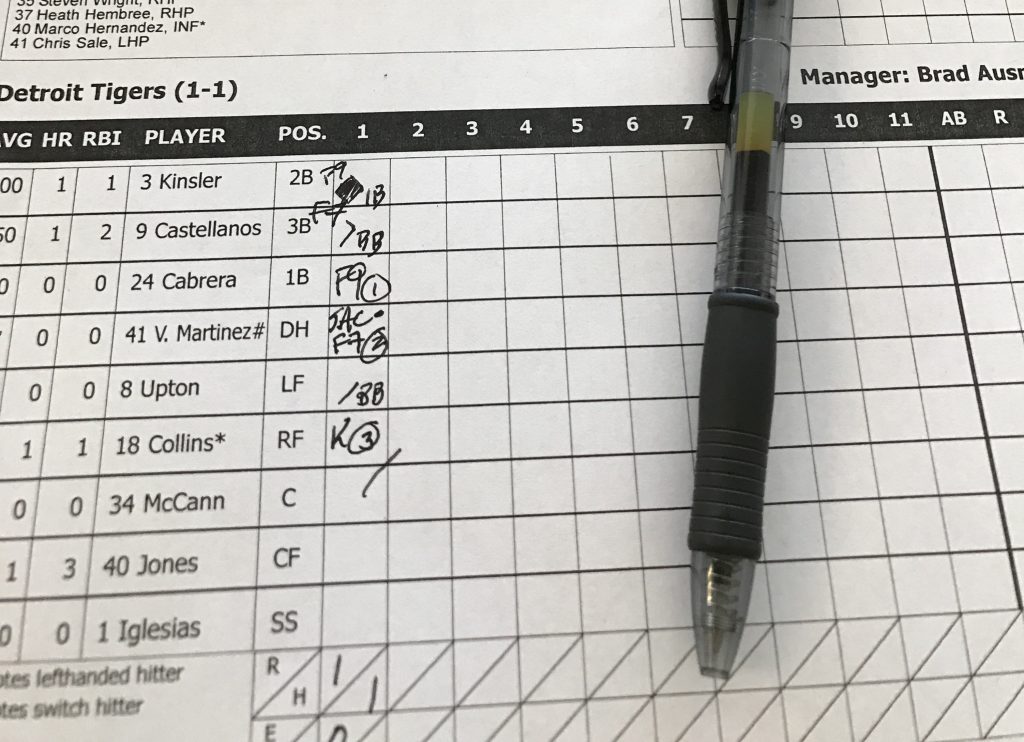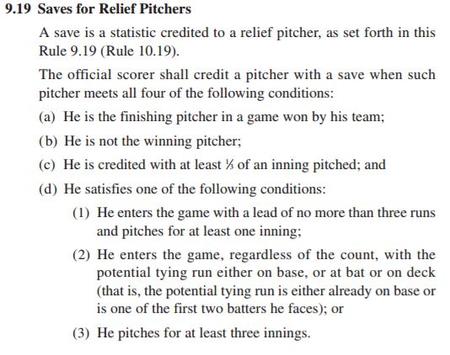ESPN Writer Says It’s Time to Close the Book on Saves and Other Useless Stats
Keith Law explains how the “save” and other stats are ruining baseball.

When the Detroit Tigers traded two prospects to Milwaukee for reliever Francisco Rodriguez in 2015, he was considered one of baseball’s best closers. “K-Rod” has earned more saves (437) than any other active pitcher in Major League Baseball, and ranks fourth all-time.
| Player | Saves | Teams |
| Mariano Rivera | 652 | Yankees |
| Trevor Hoffman | 601 | Marlins, Padres, Brewers |
| Lee Smith | 478 | Eight different teams, mostly with Cubs |
| Francisco Rodriguez | 437 | Angels, Mets, Brewers, Orioles, Tigers |
| John Franco | 424 | Reds, Mets, Astros |
Source: Baseball Reference
In his first season as a Tiger, Rodriguez converted 44 saves in 49 opportunities. His opponents’ on-base percentage of .285 was better than the American League average, and he allowed two out of 16 inherited base runners to score. In 2017, K-Rod has blown four saves in 11 chances, his opponents’ OBP is .379, and six of the seven runners he inherited have scored.
Manager Brad Ausmus reluctantly demoted Rodriguez after back-to-back blown saves in Oakland on May 6 and 7.
The Tigers and many other teams have spent millions of dollars on closers over the years (Rodriguez is earning $6 million dollars in the final year of his contract). General managers shell out big bucks to sign relievers who can shut down an opposing team in the ninth inning.
And it’s ruining the game, according to ESPN Senior Baseball Writer Keith Law. In his new book, “Smart Baseball”, he explains how MLB franchises have relied too much on the save and other stats when building their teams.

“They’re managing to the stat, they’re building rosters around the stat, we even compensate players around that stat,” Law tells WDET’s Pat Batcheller.
The save was invented by a sportswriter, Jerome Holtzman, as a way to give relief pitchers partial credit for their teams’ wins. The problem, Law writes, is that the criteria for earning a save are arbitrary and arcane.
According to MLB’s official rules, a pitcher earns a save if he meets several conditions:

In other words, a reliever who pitches poorly can still earn a save as long as his team wins. That’s what happened on April 14 in Cleveland. The Tigers led the Indians 7-1 in the bottom of the ninth inning. Ausmus brought in reliever William Cuevas to finish the game. By rule, it was not a save situation. But it became one when Cuevas loaded the bases and allowed a run to score before Rodriguez relieved him. After striking out Abraham Almonte, K-Rod faced pinch-hitter Lonnie Chisenhall, who hit a grand slam home run to make it 7-6. Rodriguez struck out Austin Jackson to end the game and earn his fourth save of the season.
“Did he pitch well? Of course he didn’t,” Law says, adding that the save has fueled another wrong-headed idea–the “proven” closer, someone who has demonstrated he can handle the unique pressure of pitching the ninth inning.
Baloney, Law says.
“The idea of a pitcher who can pitch really effectively in the seventh or the eighth, but can’t handle the pressure of the ninth–not in the big leagues,” Law says. “If there’s any mental incapacity to handle pressure situations, they’ve been weeded out long before they reach the majors.”
Law takes apart other traditional stats such as runs batted in, pitcher wins, and fielding percentage in his book. He says other stats and advanced metrics are better at evaluating players, including wins above replacement (WAR), win probability added, on-base percentage, and ultimate zone ratings for fielders. Click on the audio player to hear the conversation.
